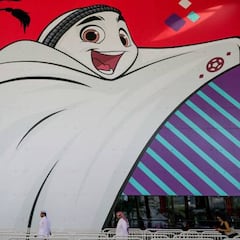The FIFA World Cup’s most iconic performers
As we wait to see who will star at the 2022 World Cup, we look back at iconic players from previous tournaments
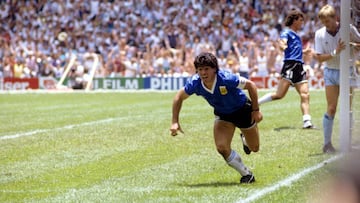
Who is the greatest soccer player in history? I know what you’re thinking. That’s one of the most tedious questions of all-time.
We all have our favourites, for one reason or another, while the act of comparing players across different eras is an almost impossible task.
One argument you’ll often hear, though, is that to be the ‘greatest player of all-time’, you have to have made a World Cup your own. Whether that’s true or not is also up for debate, although, looking back, it’s perhaps not a coincidence that some of the most iconic performers from previous editions of the world’s biggest sporting event are in the conversation to be the ‘best ever’.
Pelé – 1958 & 1970
Pelé is the only man to have won three World Cups – 1958, 1962 and 1970. For that alone, you could argue that he deserves to be on this list. The forward remains Brazil’s youngest ever goalscorer, having netted on his debut against Argentina aged 16 years and 9 months in 1957. Despite missing the first two games of the 1958 tournament due to injury, he would go on to score a hat-trick in the semi-finals against France and twice in the final versus Sweden, also becoming the World Cup’s youngest goalscorer in the process, a record which stands to this day.
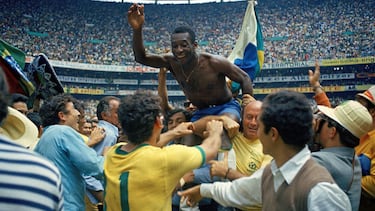
Another injury meant he had a limited impact in the 1962 tournament, while he was a target for defenders in the 1966 edition, which led to him vowing never to play in the World Cup again. He reversed that decision in time for 1970, however, and would be the central figure in what many consider to be the greatest football team in history. Pelé scored four goals as Brazil won in Mexico and was also involved in a number of iconic moments, such as providing the final pass for Carlos Alberto to score the team’s fourth goal in the final, often described as the ‘best team goal’ of all-time, having a header saved by Gordon Banks in what was referred to as ‘the save of the century’ and deceiving Uruguay goalkeeper Ladislao Mazurkiewicz with a magical feint which had never been seen on a soccer field before.
Franz Beckenbauer – 1974
Franz Beckenbauer was a mainstay of the West Germany team in three separate World Cups (1966, 1970 and 1974) but it was his performances in the latter which really cemented him as of soccer’s greatest ever players. The West Germans had been runners-up to England in 1966 – Beckenbauer scored four times despite playing in defence – and lost in the semi-finals to Italy four years later. But they would finally get their hands on the trophy on home soil in 1974, with Beckenbauer captaining his team to glory and helping them keep clean sheets in five of their seven games in the tournament. Even the great ‘Total Football’ Netherlands side led by Johan Cruyff could not find a way past Beckenbauer and his mates, with the hosts defeating their near neighbours 2-1 in the final in Munich.
Paolo Rossi - 1982
A proper villain-to-hero story as Paolo Rossi led Italy to World Cup glory in Spain in 1982. The striker had already shone in Argentina four years earlier, scoring three times as Italy finished in fourth spot. Following that tournament, however, Rossi was forced to serve a two-year suspension for his part in a match-fixing scandal, which saw him miss the 1980 European Championships. Despite only returning to competitive football a few weeks before the World Cup, he was selected in the Italy squad and was a target of criticism as the Italians struggled to make their way out of the first group stage.
The Juventus attacker, however, came alive in the last three games of the tournament as he played his way into shape. A hat-trick against Brazil, one of the favourites to win the competition, ensured Italy qualified for the semi-finals, where he would score twice in a victory over Poland. Rossi then opened the scoring in the final against Argentina in Madrid and ended up winning the tournament’s Golden Boot.
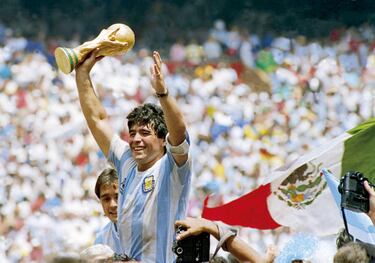
Diego Maradona - 1986
The late, great Diego Maradona played in four World Cups – and managed in another in 2010 – but it is without doubt his performances in Mexico in 1986 for which he is best remembered. Argentina went into that tournament in disarray, having only just qualified and seen their World-Cup winning captain from 1978, Daniel Passarella, miss the tournament reportedly due to illness, although he later himself claimed that Maradona and coach Carlos Bilardo didn’t want him on the roster.
In any case, Maradona almost single-handedly led Argentina to the trophy, with a string of taking-the-game-by-the-scruff-of-the-neck displays accompanied by five goals in seven matches, which included a double versus Belgium in the semi-finals. The then-Napoli playmaker, of course, scored two even more famous goals against England in the previous round, iconic for different reasons. If the ‘Hand of God’ goal was cheeky and impudent (many would say cheating), the mazy dribble from inside his own half was just pure genius.
Zinedine Zidane – 2006 (& 1998)
Like Pele, the big question here was which year to put next to Zidane’s name. Zizou scored two headed goals against Brazil in the 1998 final, which somewhat masked the fact that he hadn’t done all that much in the tournament up until then and in fact missed two matches through suspension after being sent off against Saudi Arabia in the second group game. But a brace in the final inevitably turned him into one of the world’s superstar players, which he remained until his retirement at the end of the 2006 tournament.
Like France, Zidane got off to a slow start in Germany but scored three goals in the knockout stages, including the semi-final winner against Portugal and a third World Cup final goal – tying the record – from the penalty spot against Italy. There’s nothing more iconic than his infamous sending-off in extra-time in that final, although his majestic performance in the quarter-finals against Brazil comes close. Zidane set up the only goal of the game for Thierry Henry but it was his exhibition of effortless control, passing, tricks and flicks which will forever be remembered.
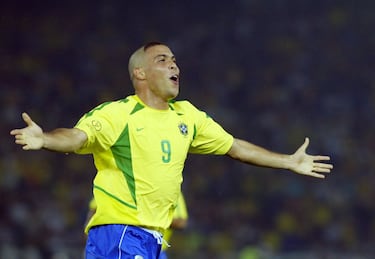
Ronaldo – 2002
Related stories
It’s easy to forget that a 17-year-old Ronaldo Luís Nazário de Lima – just Ronaldo to you and me – was part of the Brazil roster when they won the World Cup in 1994. The striker didn’t play a single minute in the United States but was thought of as one of the world’s top players by the time France ‘98 came around. Four goals in that tournament were overshadowed by an ‘incident’ before the final against France which led to him being missing from the starting line-up before being reinstated minutes before kick-off. Rumours abound to this day. Did he suffer a nervous breakdown? Did he have a fit? Did he suffer an allergic reaction to an injection in his injured knee?
Four years later, a slightly fuller – but no less lethal – Ronaldo was back at his best in Japan and South Korea, top scoring with eight goals, which included a semi-final winner against Turkey and a double in the final to see off Germany. A superb on-field performance which excused his questionable choice of hairstyle.

